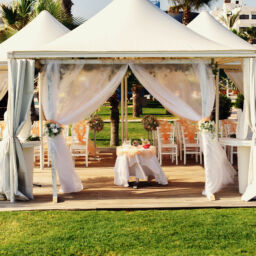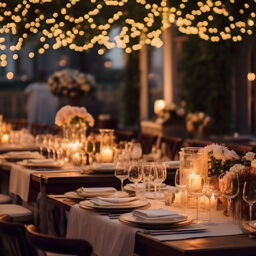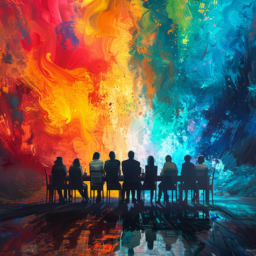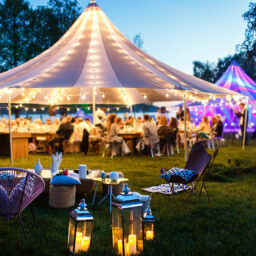Event planning is an art form, an alchemy that blends setting, the human element, and
impeccable timing. But what do you do when the stage doesn’t inspire, when hotel conference
rooms and standard event venues become stifling, familiar, and— dare we say—mundane?
This is where the exciting arena of urban exploration steps in. We shift our focus from interior
comfort to the bustling, untamed urban landscape and ask how to reinvent public spaces to host
the next unforgettable event.
In this post, we’ll venture into urban exploration, reimagining how abandoned warehouses can
become art galleries and how a simple street corner can transform into the latest food festival
hotspot. We’ll explore practical ways to make these ideas a reality and examine how this new
paradigm in event planning captivates attendees and contributes to our cities’ cultural fabric.
The Allure of Urban Exploration
Urban exploration encapsulates the spirit of adventure, discovery, and a thirst for the
unconventional. It’s about finding the unseen beauty within the city’s hard lines and bustling
rhythm. Urban environments are not solely the domain of city dwellers; they are blank canvases
of possibility, eager for fresh perspectives and innovative recreations.
Public spaces harbor untapped potential, from disused railway stations to decrepit shopping
malls. When selected with care and respect, these spaces can inject an air of raw authenticity
into events. They can echo the area’s forgotten history and heritage while simultaneously
forging a new narrative as a gathering place for modern communities.
The attractions are not just emotional—there’s a financial appeal too. Utilizing public spaces is
often more cost-effective than traditional venue hire. Furthermore, it amplifies an event’s
exposure, as the very novelty of the site can attract media attention and event-goers seeking a
unique experience.
Ethical Implications and Legalities
While the allure of urban spaces for events is palpable, it’s crucial to address the ethical and
legal considerations that can’t be overlooked. Respect for local regulations, permits, and
environmental impact is paramount.
The ethical duty of an event planner is to ensure that the chosen location can safely
accommodate the anticipated crowd. Additionally, understanding the community’s history and
present-day context is essential. Urban exploration events are not just about creating a
spectacle—they are an affirmation of community values and can if done with care, feed back
into local economies and narratives.
Transforming Industrial Ruins into Cultural Hubs
One of the most significant triumphs of urban exploration in events is the rebirth of industrial
ruins. Across the globe, disused factories, warehouses, and silos stand as silent sentinels of a
bygone era. Event planners can offer a unique ambiance by transforming these often cavernous
and architecturally stunning spaces.
Consider a long-abandoned steel mill repurposed as a fashion runway for a sustainable fashion
show. The juxtaposition of industrial grit and the glamor of high fashion makes for an
electrifying, Instagrammable event that resonates with a large, diverse audience.
Navigating the Logistics of Public Space Events
Logistics for public space events involve many unique challenges. Compared to traditional
venues, public spaces seldom have facilities catering to modern event requirements. Portable
event flooring, power generation, sanitation, waste management, and security are critical
considerations when charting an event’s blueprint.
Working closely with local authorities and community stakeholders helps ensure compliance and
fosters a sense of mutual respect and shared purpose. Local vendors and businesses can
become valuable allies, providing essential services and contributing to the event’s success.
This approach doesn’t just manage logistics; it builds bridges within the urban community.
Sustainable Event Planning and Urban Regeneration
The temporary nature of pop-up events in public spaces is also a statement on sustainable
event planning. Rather than set in reclusive opulence, these urban events signify a return to the
community, a shared respect for public resources, and a reduction in environmental impact. The
typically short lifespan of these events, often just a few days, promotes a ‘leave no trace’
philosophy that echoes the sustainability ethos growing in the event industry.
Furthermore, they contribute to urban regeneration by breathing new life into forgotten corners
of the city, potentially sparking investment and interest in these areas. Event planners become
catalysts for positive change, intertwining with the city’s ongoing narrative and progress.
Bringing Cuisine to the Streets
Food brings people together, and what better way to foster community than through pop-up
culinary events in public spaces? Street food festivals, for example, have become a worldwide
phenomenon, attracting foodies and casual event-goers alike. More than a carnival of flavors,
these events demonstrate cultural exchange and community integration.
The logistics for such events emphasize the culinary experience, the accessibility and comfort of
attendees, and local regulations surrounding food service and handling. But the outcomes are
usually beyond satisfying—they celebrate local and international cuisines, spark conversations,
and inject vitality into the city’s dining scene.
Art Installations and Public Performances
Public spaces are perfect canvasses for artistic expression. Temporary art installations can
captivate passersby, while public performances can redefine the city’s rhythm. In an ‘urban
canvas’ event, professional artists create murals or sculptures in real time, allowing the public to
experience the birth of an art piece and even participate.
Similarly, pop-up concerts or theaters in unexpected urban backdrops can provide an
unforgettable experience. The logistics involve managing sound restrictions, crowd control, and
ensuring artists have adequate facilities. But these events are about more than the
performance—they’re about reshaping urban spaces and making art accessible to the masses.
The Future of Public Space Events
The potential for public space as an event venue is vast, with technology poised to play a
significant role in its development. Augmented reality, drones, and interactive elements could
soon become commonplace in urban events, creating immersive experiences that blur the lines
between physical and digital realms.
The emergence of smart cities also means that infrastructure in public spaces could adapt to
event needs more seamlessly, potentially reducing set-up times and simplifying logistics.
Conclusion: Charting a New Course for Events
Urban exploration as an event planning model is more than a niche—it’s an affirmation that the
city is alive with opportunity, waiting to be transformed and shared. It represents a migration
from the worn carpet of hotel lobbies to the pavement of untold stories—stories waiting to unfold
within the public’s realm.
While a transformation of this scale is not without its challenges, the results can redefine our
ideas of modern events when executed with integrity and vision. They can spark interest,
engage communities, and become landmarks in their own right.
For event planners, venue owners, and anyone with an eye for the extraordinary—public spaces
are untapped treasure troves waiting for the right alchemy to turn them into unforgettable event
venues. The city is your playground, the canvas, and the backdrop for the future of events.














